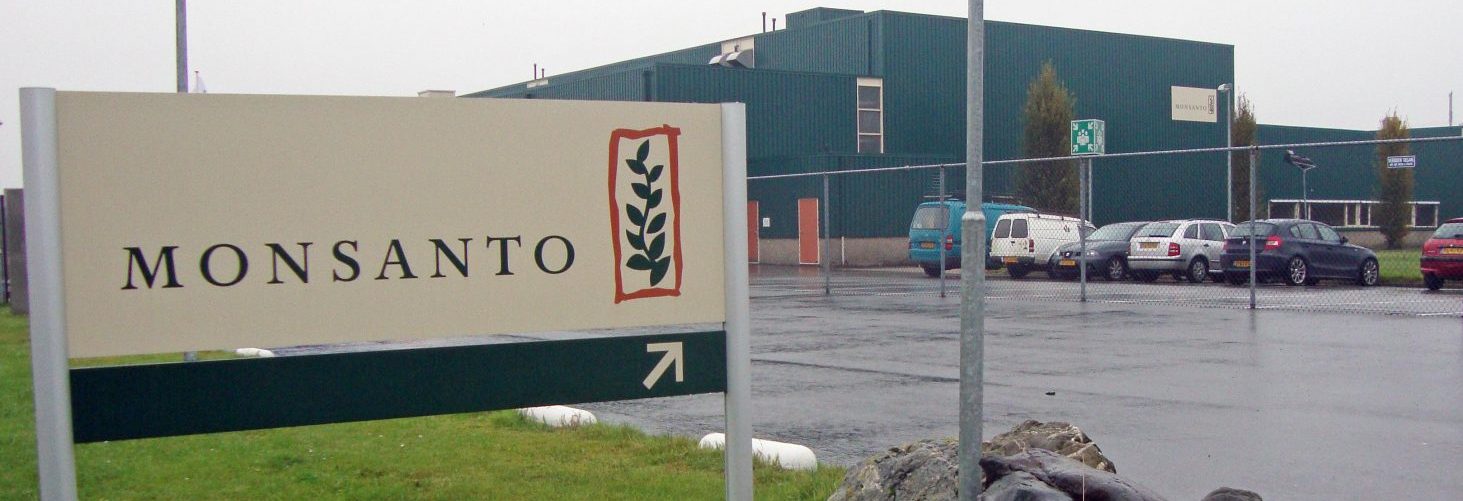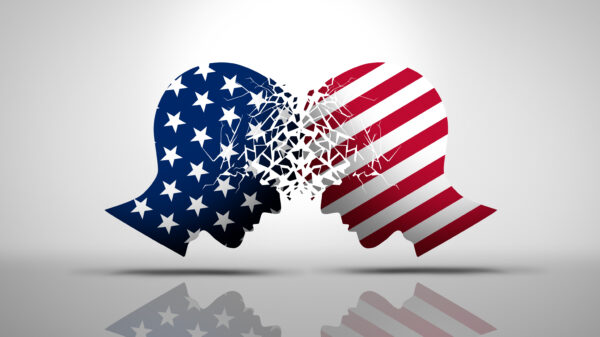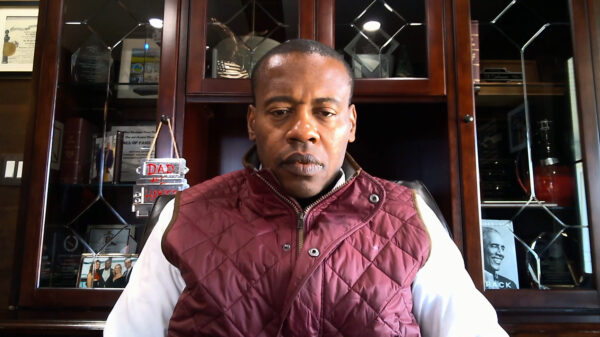By Brandon Moseley
Alabama Political Reporter
The President of the United States is the most powerful position in the world and that is doubly true when we are talking about approving the mergers of mega corporations. Monopolies including Standard Oil, the Northern Securities Company, IBM, and AT&T have all been broken up by federal regulators.
While President Theodore Roosevelt (R) and Howard Taft (R) broke up a combined 135 trusts, more recent Presidents have been much more reluctant to interfere with corporations. In the banking crisis of 2008, rather than break up the large financial corporations that were largely responsible for the banking and securities crisis the government adopted a “too big to fail” mantra and actually used taxpayer money to prop-up and in many cases increase the footprint of the multi-national mega-banks. As critical as banking is to the economy; it is not food. President Donald J. Trump (R) is in the unenviable position of have in decide whether or not two of the world’s largest multinational agricultural firms, Bayer and Monsanto, may merge their global agro-chemical and seed business.
President Trump has yet to take a position on what is being increasingly called “the most far-reaching merger in the modern history of agriculture.”
On Monday Newsmax asked White House Press Secretary Sarah Huckabee Sanders what the President’s position was on the merger. Secretary Sanders told Newsmax: “I haven’t spoken to him on that. I’ll have to get back to you.”
Before Trump’s inauguration, Werner Baumann, the CEO of Germany based Bayer and Hugh Grant, CEO of the Missouri-based Monsanto, met with the President-elect in January 2017 to discuss the merger estimated at $66 billion.
Aides to Baumann and Grant told reporters that the two CEO’s promised Trump $8 billion of investment in the U.S. and thousands of new American jobs should the merger go through.
“It was a productive meeting about the future of agriculture and the need for innovation,” a Bayer spokesman told Reuters after the meeting.
Trump’s appointees to the Anti-Trust Division of the U.S. Department of Justice and the Federal Trade Commission will decide whether the merger can happen.
Many farm groups oppose the merger and are appealing to President Trump to block the merger.
The Chairman of Farmers and Families First Dan Conston said, “President Trump carried the day last November because voters believed he would promote policies that helped working families, rural communities, and American small businesses.” “The proposed merger would hurt the very people who elected President Trump by handing over disproportionate control of an industry to one company and in turn raising both operating costs for farmers and the cost of food for middle class families. We believe the Department of Justice should carefully review the proposed merger and ask the tough questions to ensure it doesn’t negatively impact American families or businesses.”
A Texas A&M white paper was released late in 2017 showing how the proposed merger would raise aggregate seed prices by 5.5 percent and raise cottonseed prices by more than 20 percent. A merged Bayer-Monsanto would control over 35 percent of the global market for corn seeds, roughly 28 percent of the global soybean market, almost 70 percent of the global cottonseed market and up to 69 percent of U.S. approved herbicide-tolerant seeds for alfalfa, canola, corn, wheat, soybean and cotton.
The merger was proposed in the fall of 2016 and is currently under review by the European Commission, Brazil and the U.S. Department of Justice. Monsanto initiated the merger as an opportunity to combine seeds, traits, crop protection biologics and digital farming into a single “globally integrated agricultural platform.”
Late in the twentieth century, scientists with Monsanto discovered a gene for herbicide resistance. Glyco-phosphate, tradename Roundup, kills plants. In 2001, Monsanto developed a genetically modified organism corn variety that was not harmed by glyco-phosphate. Farmers could plant the Roundup ready corn and let it and the weeds come up; then spray the field with Roundup and everything died but the corn. It was far more effective and cheaper than mechanical cultivating the field to remove the weeds or tilling the soil to the point where there were few if any weeds left. In 2002, Roundup ready soybeans hit the market. Roundup Ready cotton and other products followed. By 2005, there was a billion acres of the new crops planted – all of it planted in seed purchased from Monsanto.
The result of these crop innovations has been greater integration of the seed and agricultural chemical markets and tighter consolidation of the entire agriculture industry which, according to research by Texas A&M, has already led to significantly higher seed prices.
Researchers at Texas A&M warn that allowing the merger of Monsanto and Bayer, two of the four largest seed companies in the world, would create a single company with the largest share of the global market for all grain seeds and the seeds of a substantial number of vegetables, like broccoli, green beans, carrots and onions.
All of this is a new phenomenon. Before 1990, there were 600 or more small, independent seed businesses, many of them family-owned in the world. The corporations began to buy out the smaller companies. By 2006, there were only 250 left. By 2009, only about 100 survived on the planet. Meanwhile the introduction of traited seeds means that seed prices of more than doubled.
Historically many farmers, especially soybeans farmers, kept back a portion of their harvest as seed for next year. Since Monsanto has patents on its seed, that became illegal and Monsanto has been zealous in the lawsuits that they have brought against farmers who plant Monsanto’s patented seeds without buying them from a Monsanto dealer.
More and more farmers are switching from conventional seeds to seeds that have been genetically modified and the cost of seed as an input has soared. Many farmers who resisted Monsanto’s traited seeds have found that the traited plants have gotten into their fields through pollination; while their neighbors’ accidental spraying of the glycol-phosphates and particularly the new Dicambria product herbicides have killed their non-herbicide resistant legacy crops.
Today most of the seed on the planet is produced by just four companies: Monsanto, Bayer, Syngenta and Dow DuPont. In 1994, the top four seed companies had 21 percent of the total global commercial seed sales. By 2009, they had 54 percent of all sales.
Monsanto is already the biggest of the big four. Combine it with Bayer Ag, the multi-national corporation would be by far the biggest seed company on the planet. A merged Monsanto/Bayer would also be the world’s largest agrochemical company, constituting roughly one-quarter of the global market and reaping annual revenues of more than $67 billion.
Monsanto has even greater dominance in the U.S. market. In 2009, 77 percent of all U.S. acres of cotton, 82 percent of all American acres of corn, and 95 percent of U.S. soybeans were planted with seed varieties containing Monsanto traits.
According to researchers at Texas A&M’s Agricultural and Food Policy Center the Monsanto-Bayer merger would result in farmers currently using Monsanto’s brands of cottonseed should expect seed prices to rise by 19.23 percent on average, and those using Bayer’s brands can expect price increases around 17.41 percent on average. Moreover, the Center’s calculations revealed a 75 percent probability that the seed prices of both companies would increase by almost 14 percent on average, and a 25 percent probability that combined seed prices would rise by an average of over 20 percent.
Many farm groups, including Farmers and Families First, are urging the U.S. Department of Justice, the European Union, and the Brazil government not to approve the merger. They are appealing to President Trump to say no to this merger.
(Original reporting by Newsmax’s John Gizzi contributed to this report.)





















































